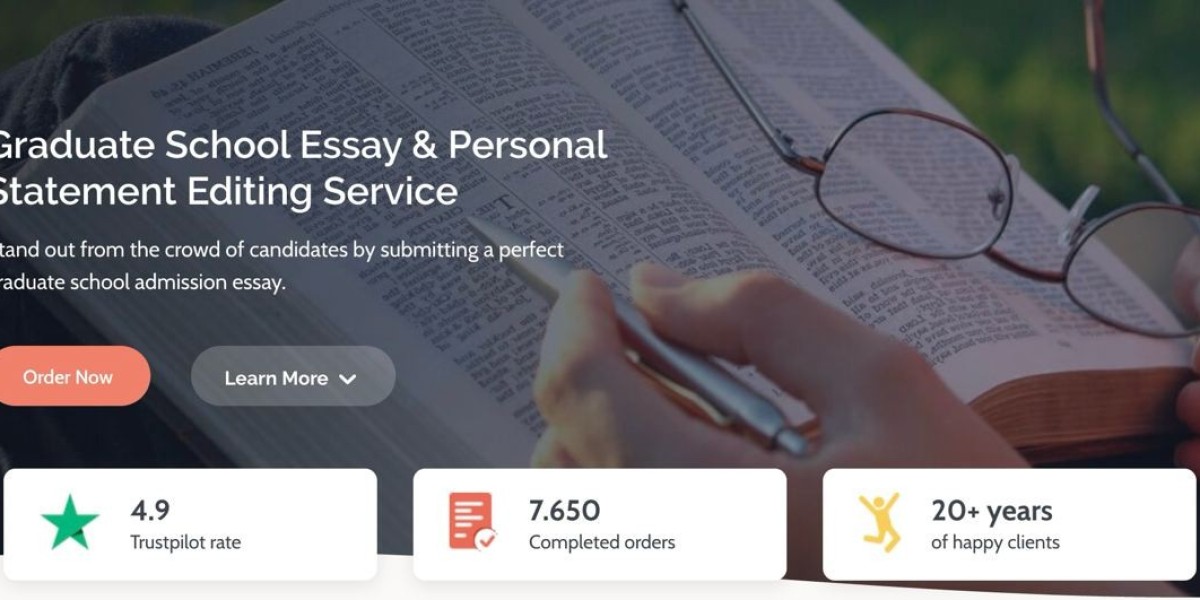When admissions officers sift through a stack of applications, many profiles start to blur together—GPAs, test scores, recommendation letters. All solid. All similar. What often tips the balance is the personal statement. It’s the one part of the application where a real person can show up on the page.
But writing something that stands out, in the right way, isn’t easy.
The Essay That Can Make or Break You
A personal statement isn’t a formality. It’s not something you toss together after hitting submit on your transcripts. It’s the closest thing to a conversation you’ll get with the admissions committee. They want to see more than your achievements — they want to understand how you think, what drives you, and whether you know what you're getting into.
That’s a tall order for 500 to 1,000 words. But it's possible. Applicants who treat the essay like a strategic piece of writing — not a diary entry, not a creative writing contest — usually do better. That doesn’t mean losing personality. It means knowing what the essay’s job is: to connect your story with your professional goals and show why you belong in that program.
What Committees Actually Look For
There’s a big gap between what most applicants focus on and what admissions officers actually want to read.
They're not reading for drama or punchlines. They're looking for clarity, purpose, and direction. A great essay answers these unspoken questions:
- Do you understand what this program is about?
- Are your goals realistic and aligned with what the school offers?
- Have your past experiences shaped a clear path to grad school?
- Can you communicate ideas clearly and professionally?
They’re looking for fit — between you and the program, between your goals and what the degree can realistically help you do.
You don’t have to have it all figured out. But you need to show that you’ve thought about it seriously.
Common Mistakes That Hurt a Strong Profile
One of the most frustrating things for admissions reviewers is reading a weak essay from a clearly qualified applicant.
Here’s what tends to go wrong:
- Vagueness: Saying you “want to make a difference” or “are passionate about research” without examples.
- No structure: A series of disconnected thoughts without a clear beginning, middle, and end.
- Too much resume: Repeating what’s already in your CV instead of telling a story behind the bullet points.
- Overly casual or overly formal tone: You’re writing to professionals, but they’re people — your tone should reflect both.
- Generic writing: If your essay could be pasted into another application with no edits, it's too generic.
None of these flaws scream “bad applicant.” But they do make it harder for reviewers to picture you in their program. That’s enough to cost you a spot.
The Power of a Clear Story
Strong personal statements almost always tell a story. Not a dramatic life tale, but a clear line from past experience to future goal.
You don’t need an extraordinary background to tell a compelling story. Some of the best essays come from applicants who’ve taken small steps toward a clear goal — like working in a lab, taking extra courses, volunteering, or managing a project at work that made them realize what they want to study further.
What matters most is that the story is honest and grounded. You’re not selling a version of yourself — you’re explaining the path you’re on and why this degree is a logical next step.
And don’t underestimate voice. Admissions committees read hundreds of essays. The ones that stand out aren’t always the most polished — they’re the ones that sound like someone is talking to them, not performing.
Editing Is More Than Proofreading
Here’s the truth: no one gets it right the first time. A strong essay almost always goes through multiple drafts — not just to fix typos, but to improve clarity, tone, and structure.
That’s where outside feedback becomes key. It’s not just about grammar. You need someone who understands what graduate programs are looking for — someone who can flag where your logic isn’t landing or where your story feels thin.
That’s why many applicants turn to a Graduate Essay Editing Service when it’s time to finalize their statements. It’s not about outsourcing the work. It’s about investing in a clean, strategic, and confident version of your own story. One that reads the way you meant it to.
Because the admissions committee doesn’t know what you intended to say — they only see what’s on the page.
Every Word Counts
Graduate admissions aren’t just about credentials — they’re about fit, focus, and communication. The personal statement is where all of that comes together.
The difference between a solid essay and a great one isn’t dramatic storytelling or perfect writing. It’s clarity. It’s purpose. It’s showing, with confidence, that you know why you’re applying — and why this program is the right next step.
If you're serious about getting in, treat your personal statement like the most important writing sample you’ll submit. Because, in many ways, it is.



